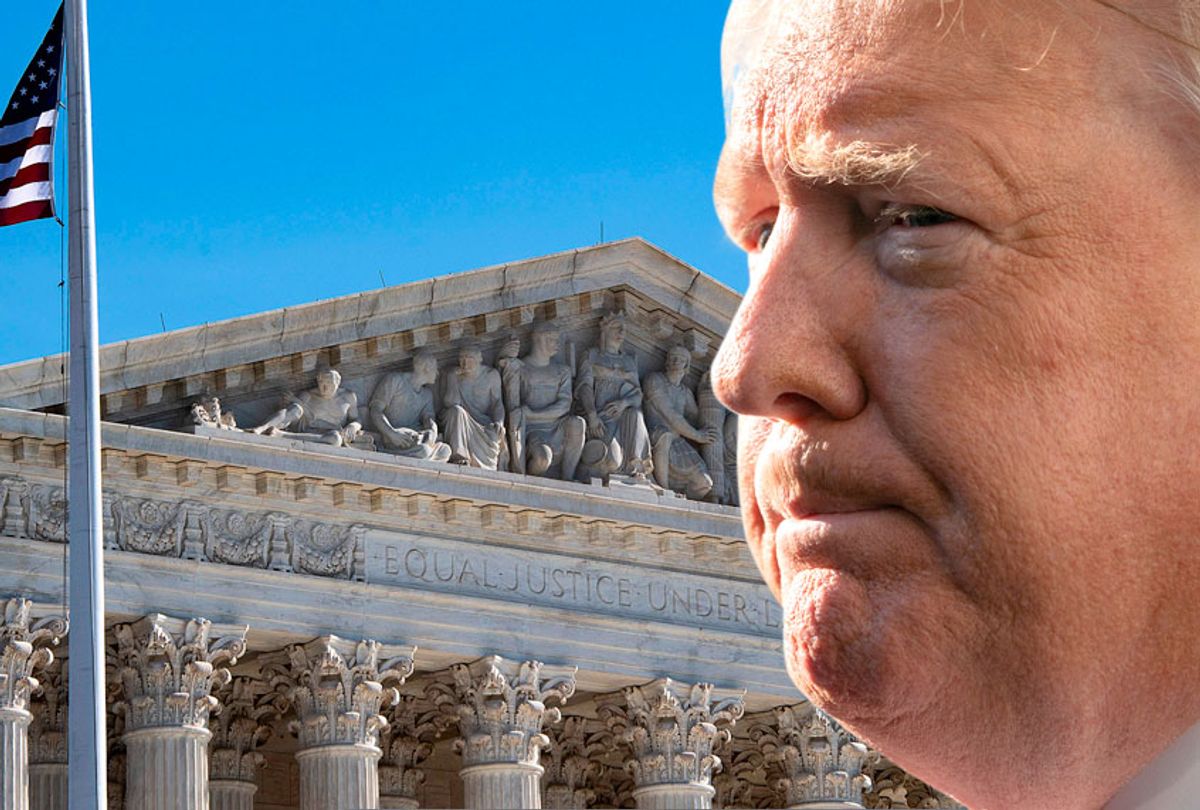Nomination of conservative Amy Coney Barrett to the Supreme Court makes us think about the role of government in our lives and the Republican majority view of winning vs. fairness.
That her lifetime confirmation will change the direction of the Supreme Court for many years is a given, and, as it happens a sop toward Donald Trump's re-election efforts.
But what is there to learn here?
Here's the good news about nominee Barrett: There will be no nonsense about a woman as the nominee, and minimal attention on her choices about religion, lifestyle and what she wears. She will get the same black robe as the rest.
It finally is a choice that is about ideas and about visions of what we want as a nation — even if it comes as a forced march by a Senate that has no time to deal with coronavirus aid.
Her professed allegiance to "originalism" in the law, the mostly conservative but often libertarian view that the original words of the Constitution and the law should suffice for modern challenges — a view she shares with the other recently named justices — is something we need to understand to chart the Court's future.
We can expect that originalism, for example, will become the substantial legal argument that will lead her to vote to overturn the Affordable Care Act, or Obamacare, over narrow interpretations of tax law, or to eliminate legal abortion as having been argued previously under the "wrong" section of the Constitution. It's not her particular brand of Catholicism that will drive her anti-abortion decision-making — though she is seriously anti-abortion as a person — but her insistence on interpreting the Constitution literally that will lead to the same place.
Barrett's record
In her record as clerk, law professor and judge, there is evidence of far more — a tendency to view the Bill of Rights as anything but generous for life choices. Mark Joseph Stern, who writes about law for Slate, noted that in reading through all of her written decisions, what comes across is not conservatism as much as a certain meanness about the fate of the individual against business, institutions and government.
Ruth Bader Ginsburg saw the Bill of Rights and civil rights acts as generous guarantees of human dignity that must be read expansively to achieve their purpose. By contrast, Barrett's view of the law is fundamentally cruel. During her three years on the 7th Circuit Court of Appeals, Barrett either has written or joined a remarkable number of opinions that harm unpopular and powerless individuals who rely on the judiciary to safeguard their rights.
"Faced with two plausible readings of a law, fact, or precedent, Barrett always seems to choose the harsher, stingier interpretation. Can job applicants sue employers whose policies have a disproportionately deleterious impact on older people? Barrett said no. Should courts halt the deportation of an immigrant who faced torture at home? Barrett said no. Should they protect refugees denied asylum on the basis of xenophobic prejudice? Barrett said no. Should they shield prisoners from unjustified violence by correctional officers? Barrett said no. Should minors be allowed to terminate a pregnancy without telling their parents if a judge has found that they're mature enough to make the decision? Barrett said no. Should women be permitted to obtain an abortion upon discovering a severe fetal abnormality? Barrett said no."
Per her record, if the case is about religion or guns, Barrett is for the individual; if it is about abortion or gender, Barrett seems to forget about the individual.
Barrett has criticized Chief Justice John Roberts' decisions to uphold narrowly Obamacare, presumably in part out of a belief that the Court is in no position to simply strip 20 million Americans of health care. So, health care rather than abortion undoubtedly will be the key question that Democrats on the Senate Judiciary Committee find for focus — because Barrett is on the record. There is no Republican legislative remedy for this, and we will have yet more chaos in the midst of a pandemic — for the right to uphold a strict interpretation of Constitutional law.
From past decisions, it is clear that she will uphold the Trump steamroller to obliterate environmental regulations and to monitor labor grievances or regulate Wall Street.
Futile confirmation hearings?
With the votes already lined up, the idea of confirmation hearings seems almost futile. Nevertheless, it is a chance for us to feel as if we know what we will be getting into.
My question for Barrett is this: We get the originalism idea, but how does that concept allow us to pick and choose its way about protection of the individual?
I want to know how she matches the specifics of the law — and its legal precedents — with the realities we face in our country.
Do we believe in justice that advances individual rights? If so, why is religion a shield, and consumerist legislation not? Why is legislation that enables government to decide what constitutes marriage OK, and individual rights to health treatments not OK? Why are Americans to be afforded the right to assault weapons but not clean air? What is the role of actions to balance centuries of racial unfairness?
There is a certain sense that the approach is more important than a sense of "justice." These confirmation hearings always are a bit of a crapshoot since the judges won't really talk about their views. But an examination of their records should tell us about how they approach the job.
There will be attempts to ask about her affiliation with People of Praise, a religious group that until recently referred to its female leaders as "handmaids" ― evoking comparisons to Margaret Atwood's dystopian novel "The Handmaid's Tale." I hope they are set aside quickly — other than establishing that personal beliefs are no substitute for creating a legal precedent.
The Court is about to launch a revolution in exact opposition to the majority of its citizenry. We need to understand how we deal with that.




Shares